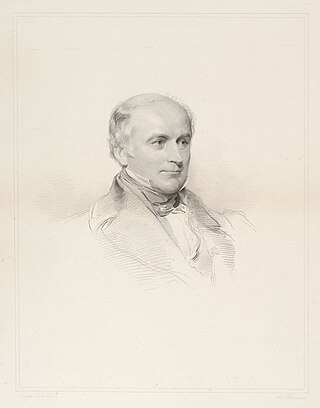
In law, a trust is a relationship in which the holder of property gives it to another person or entity who must keep and use it solely for the benefit of another person or group of persons. In the English common law tradition, the party who entrusts the property is known as the "settlor", the party to whom the property is entrusted is known as the "trustee", the party for whose benefit the property is entrusted is known as the "beneficiary", and the entrusted property itself is known as the "corpus" or "trust property". A testamentary trust is created by a will and arises after the death of the settlor. An inter vivos trust is created during the settlor's lifetime by a trust instrument. A trust may be revocable or irrevocable; an irrevocable trust can be "broken" (revoked) by a judicial proceeding or by consent of the settlor and the beneficiaries.

In common law and statutory law, a life estate is the ownership of immovable property for the duration of a person's life. In legal terms, it is an estate in real property that ends at death, when the property rights may revert to the original owner or to another person. The owner of a life estate is called a "life tenant". The person who will take over the rights upon death is said to have a "remainder" interest and is known as a "remainderman".

Trustee is a legal term which, in its broadest sense, is a synonym for anyone in a position of trust and so can refer to any individual who holds property, authority, or a position of trust or responsibility for the benefit of another. A trustee can also be a person who is allowed to do certain tasks but not able to gain income. Although in the strictest sense of the term a trustee is the holder of property on behalf of a beneficiary, the more expansive sense encompasses persons who serve, for example, on the board of trustees of an institution that operates for a charity, for the benefit of the general public, or a person in the local government.

In trust law, an express trust is a trust created "in express terms, and usually in writing, as distinguished from one inferred by the law from the conduct or dealings of the parties." Property is transferred by a person to a transferee, who holds the property for the benefit of one or more persons, called beneficiaries. The trustee may distribute the property, or the income from that property, to the beneficiaries. Express trusts are frequently used in common law jurisdictions as methods of wealth preservation or enhancement.

The law of Bermuda is based on the common law legal system of England and Wales.
A Henson trust, in Canadian law, is a type of trust designed to benefit disabled persons. Specifically, it protects the assets of the disabled person, as well as the right to collect government benefits and entitlements.

Cestui que is a shortened version of "cestui a que use le feoffment fuit fait", lit. 'the person for whose use/benefit the feoffment was made'; in modern terms, it corresponds to a beneficiary. It is a Law French phrase of medieval English invention, which appears in the legal phrases cestui que trust, cestui que use, or cestui que vie. In contemporary English the phrase is also commonly pronounced "setty-kay" or "sesty-kay". According to Roebuck, Cestui que use is pronounced. Cestui que use and cestui que trust are often interchangeable. In some medieval documents it is seen as cestui a que. In formal legal discourse it is often used to refer to the relative novelty of a trust itself, before that English term became acceptable.
An offshore trust is a conventional trust that is formed under the laws of an offshore jurisdiction.

McPhail v Doulton[1970] UKHL 1, also known as Re Baden's Deed Trusts is a leading English trusts law case by the House of Lords on the certainty of beneficiaries. It held that so long as any given claimant can clearly be determined to be a beneficiary, or not, a trust is valid. The Lords also remanded the case to the Court of Appeal to be decided on this new legal principle as Re Baden's Deed Trusts .

Saunders v Vautier[1841] EWHC J82, (1841) 4 Beav 115 is a leading English trusts law case. It laid down the rule of equity which provides that, if all of the beneficiaries in the trust are of adult age and under no disability, the beneficiaries may require the trustee to transfer the legal estate to them and thereby terminate the trust. The rule has been repeatedly affirmed in common law jurisdictions, and is commonly referred to as "the rule in Saunders v Vautier" for shorthand.

In the trust law of England, Australia, Canada and other common law jurisdictions, a discretionary trust is a trust where the beneficiaries and/or their entitlements to the trust fund are not fixed, but are determined by the criteria set out in the trust instrument by the settlor. It is sometimes referred to as a family trust in Australia or New Zealand. Where the discretionary trust is a testamentary trust, it is common for the settlor to leave a letter of wishes for the trustees to guide them as to the settlor's wishes in the exercise of their discretion. Letters of wishes are not legally binding documents.

An interest in possession trust is a trust in which at least one beneficiary has the right to receive the income generated by the trust or the right to enjoy the trust assets for the present time in another way. The beneficiary with the right to enjoy the trust property for the time being is said to have an interest in possession and is colloquially described as an income beneficiary, or the life tenant.

United States trust law is the body of law that regulates the legal instrument for holding wealth known as a trust.
Australian trust law is the law of trusts as it is applied in Australia. It is derived from, and largely continues to follow English trust law, as modified by state and federal legislation. A number of unique features of Australian trust law arise from interactions with the Australian systems of company law, family law and taxation.

English trust law concerns the protection of assets, usually when they are held by one party for another's benefit. Trusts were a creation of the English law of property and obligations, and share a subsequent history with countries across the Commonwealth and the United States. Trusts developed when claimants in property disputes were dissatisfied with the common law courts and petitioned the King for a just and equitable result. On the King's behalf, the Lord Chancellor developed a parallel justice system in the Court of Chancery, commonly referred as equity. Historically, trusts have mostly been used where people have left money in a will, or created family settlements, charities, or some types of business venture. After the Judicature Act 1873, England's courts of equity and common law were merged, and equitable principles took precedence. Today, trusts play an important role in financial investment, especially in unit trusts and in pension trusts. Although people are generally free to set the terms of trusts in any way they like, there is a growing body of legislation to protect beneficiaries or regulate the trust relationship, including the Trustee Act 1925, Trustee Investments Act 1961, Recognition of Trusts Act 1987, Financial Services and Markets Act 2000, Trustee Act 2000, Pensions Act 1995, Pensions Act 2004 and Charities Act 2011.

The three certainties refer to a rule within English trusts law on the creation of express trusts that, to be valid, the trust instrument must show certainty of intention, subject matter and object. "Certainty of intention" means that it must be clear that the donor or testator wishes to create a trust; this is not dependent on any particular language used, and a trust can be created without the word "trust" being used, or even the donor knowing he is creating a trust. Since the 1950s, the courts have been more willing to conclude that there was intention to create a trust, rather than hold that the trust is void. "Certainty of subject matter" means that it must be clear what property is part of the trust. Historically the property must have been segregated from non-trust property; more recently, the courts have drawn a line between tangible and intangible assets, holding that with intangible assets there is not always a need for segregation. "Certainty of objects" means that it must be clear who the beneficiaries, or objects, are. The test for determining this differs depending on the type of trust; it can be that all beneficiaries must be individually identified, or that the trustees must be able to say with certainty, if a claimant comes before them, whether he is or is not a beneficiary.

Keech v Sandford[1726] EWHC J76 is a foundational case, deriving from English trusts law, on the fiduciary duty of loyalty. It concerns the law of trusts and has affected much of the thinking on directors' duties in company law. It holds that a trustee owes a strict duty of loyalty so that there can never be a possibility of any conflict of interest.
Kirby v Wilkins [1929] Ch 444 is a UK company law and English trusts law case involving the duties owed by a nominee of shares to the beneficiary. It determines that a beneficiary, if absolutely entitled, can instruct a bare nominee how to deal with the shares. Pending any instructions about voting from the beneficial owner, the registered holder can vote shares in the beneficiary's interest.

Schmidt v Rosewood Trust Ltd[2003] UKPC 26 is a judicial decision concerning the information rights of a beneficiary under a discretionary trust. Although the judgment involved a question as to the law of the Isle of Man, the Privy Council's judgment in Schmidt v Rosewood was adopted into English law by Briggs J in Breakspear v Ackland[2008] EWHC 220 (Ch).

Re Denley’s Trust Deed [1969] 1 Ch 373 is an English trusts law case, concerning the policy of the "beneficiary principle". It held that so long as the people benefitting from a trust can at least be said to have a direct and tangible interest, so as to have the locus standi to enforce a trust, it would be valid.